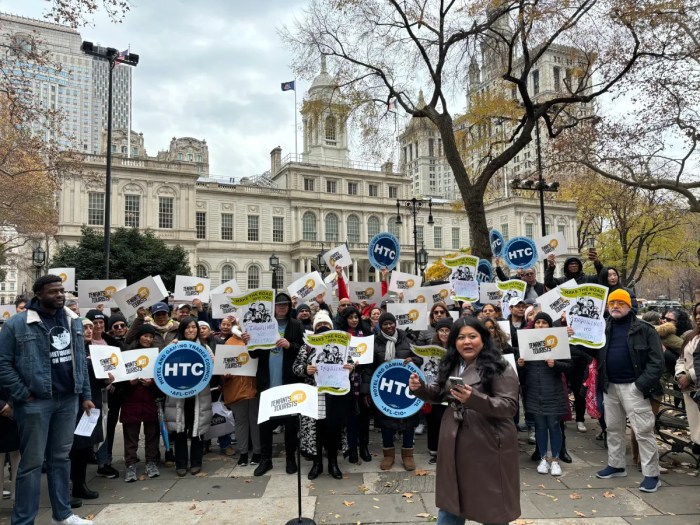Angela Taborsky believed in the power of voting. She made certain every year to cast a ballot, and when she was no longer able to make the trip to the polling site, she registered for an absentee ballot.
Taborsky died two years ago, but in every election since, she has received an absentee ballot, remaining eligible to vote.
“[My mother] instilled in us that voting was your power to make a difference, but she should not still be given that power from the grave,” said Roseanne Frankel, Taborsky’s daughter.
Frankel has been receiving the official correspondence from the Board of Elections (BOE) at Taborsky’s former Little Neck residence in each election since her mother died in July 2010.
“I can’t be the only one, and who knows if they’re voting,” Frankel said.
The only way to get an individual’s name removed from the election roll is to provide a death certificate or a certified letter to the BOE that the person has died, said Valerie Vazquez, spokesperson for the agency.
Short of this, ballots will continually be sent out until the voter is declared ineligible, a process that could take years. Without notification, the BOE does not know how many ballots are being sent to residents long dead, Vazquez said, or if they are being filled out and counted as votes.
“There would be no way for us to know that,” Vazquez said.
Councilmember Peter Vallone, who sits on the City Council’s Committee on Governmental Operations, which oversees the BOE, said he plans on speaking with the agency to see “what needs to be done to remedy this situation as soon as possible.”
“It doesn’t make sense for the BOE to wait until they receive a death certificate from a family to remove someone from the permanent absentee list,” said Vallone, who is penning a letter to the BOE on the subject. “I’m sure that’s not at the top of a family’s to-do list after a loved one dies, if anyone is even aware of this requirement.”
The BOE’s only defense against someone casting another person’s absentee ballot is the potential jail sentence.
“If you’re filling it out that would be fraudulent,” Vazquez said. “The person who did that would be perpetuating a crime.”
Votes from the deceased has long been an issue throughout the country. In 2006, a Poughkeepsie Journal investigation uncovered as many as 77,000 dead residents on New York’s election rolls, with more than 2,500 of them casting votes.
Last year, the Staten Island Advance discovered thousands of voters still registered with the city long after they died, including former politicians and celebrities. Nationally, more than 1.8 million deceased individuals are listed as voters, according to the Pew Center on the States.
Problems have plagued the BOE, with Mayor Michael Bloomberg calling the agency “incompetent” in July.
Prior to the September primary, the BOE sent out mailers to voters with incorrect poll sites, and several voters were turned away from the polls during primary day mix-ups. This year, Bengali will not be on ballots, though it is required by law,
Of the millions of registered voters in the city, more than 9,000 receive absentee ballots.
Frankel said that with local elections often coming down to the wire, a few votes can make a difference.
“My mother’s dead, I don’t want her deciding any elections.”





































